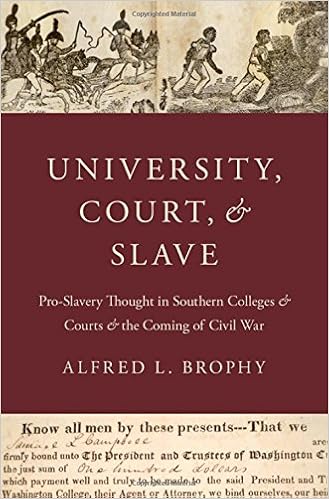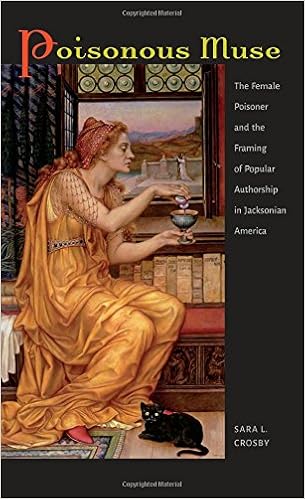In The Guardian, Daniel Trilling reviews two books on the history of Fascism in Britain (Fascist in the Family: The Tragedy of John Beckett MP and Searching for Lord Haw-Haw: The Political Lives of William Joyce). Both “wrest control of memory away from the apologists and sympathisers who would have you believe that British fascism was never as extreme as its European counterparts.”
In the Federal Lawyer, you can read reviews of The Annotated Lincoln (edited by Harold Holzer and Thomas A. Horrocks), The Age of Deference: The Supreme Court, National Security, and the Constitutional Order (by David Rudenstine), and Leon Wildes’ John Lennon vs. The USA: The Inside Story of the Most Bitterly Contested and Influential Deportation Case in United States History (which is simultaneously “a nefarious operations of the Nixon administration; a discussion of legal and constitutional issues in a key immigration case [and] a memoir by one of our most venerated immigration attorney.”)
In the Federal Lawyer, you can read reviews of The Annotated Lincoln (edited by Harold Holzer and Thomas A. Horrocks), The Age of Deference: The Supreme Court, National Security, and the Constitutional Order (by David Rudenstine), and Leon Wildes’ John Lennon vs. The USA: The Inside Story of the Most Bitterly Contested and Influential Deportation Case in United States History (which is simultaneously “a nefarious operations of the Nixon administration; a discussion of legal and constitutional issues in a key immigration case [and] a memoir by one of our most venerated immigration attorney.”)
In the NY Times, Michael Lind reviews journalist and historian Stephen Kinzer’s The True Flag: Theodore Roosevelt, Mark Twain, and the Birth of American Empire, which locates American interventionism in the Spanish-American war. (Still curious? Dennis Drabelle reviews it in the Washington Post). Beverly Gage reviews Laurel Thatcher Ullrich’s A House full of Females: Plural Marriage and Women’s Rights in Early Mormonism, 1835-1870. Besides engaging women’s history and Mormon history, Ullrich’s book, it seems, merges traditional “women’s history” (“a straightforward exploration of women’s lives and experiences on their own terms”) and gender and sexuality studies (“sexual alternatives and the fungibility of “choice” speaks implicitly to contemporary concerns over the nature of marriage and the right of the federal government to determine its contours.”).
In the Times Literary Supplement, Gabriel Paquette reviews Caitlin Fitz’s Our Sister Republics: :The United States in an age of American Revolution and Felipe Fernandez-Armesto reviews Adam Hochschild on the Spanish Civil War along with an edited volume on the war by Pete Ayrton.
The Wall St. Journal recovers the story of four liberal wonks in the Progressive Era (see Louis Gould’s review of The House of Truth: A Washington Political Salon and the Foundations of American Liberalism by Brad Snyder), and the post-war occupation of Japan, Germany and Iraq (see Nicholas M. Gallagher’s review of The Good Occupation by Susan L. Carruthers).
In the LA Review of Books you can check out Paul Finkelman’s The Electoral College as a Pro-Slavery Tool, which reviews several takes on constitutional history, and Kate McLoughlin’s review of East West Street. And if you missed it last Monday, check out Priyanka Kumar on MLK and Gandhi.
And in the London Review of Books (book reviewers seem to have gotten a head start in the isolationism game…), you can read Stephen Sedley on British politics (“For … centuries it has been the rolling back of ministerial claims to arbitrary power, exercised by the use of the royal prerogative, that has shaped the British constitution.”) and Hilary Mantel on Susan Higginbotham’s Margaret Pole: The Countess in the Tower.
On the New Books Network you can listen to Samson Lim on his Siam’s New Detectives: Visualizing Crime and Conspiracy in Modern Thailand , Timothy Sandefur on his new book, The Permission Society: How the Ruling Class Turns Our Freedoms into Privileges and What We Can Do About It; Karen Greenberg on Rogue Justice: The Making of the Security State and Sabeel Rahman on his Democracy Against Domination (a reinterpretation of “Progressive Era economic thought for the challenges of today”).
New Books Network also features Sara Crosby discussing Poisonous Muse: The Female Poisoner and the Framing of Popular Authorship in Jacksonian America. This isn’t just a way to historicize your favorite Clinton conspiracy theory (so that’s what happened to Vince Foster!), it is a discussion of how the “trope of the female poisoner permeated popular literature in the mid-nineteenth century,” and uses jury decisions as well as popular literature to explore the relationship between law and culture.
And on the H-Law Podcast, which originally published the interview with Sara Crosby, you can check out Al Brophy on University, Court and Slave: Pro-Slavery Thought in Southern Colleges and Courts and the Coming of Civil War.
In the Times Literary Supplement, Gabriel Paquette reviews Caitlin Fitz’s Our Sister Republics: :The United States in an age of American Revolution and Felipe Fernandez-Armesto reviews Adam Hochschild on the Spanish Civil War along with an edited volume on the war by Pete Ayrton.
The Wall St. Journal recovers the story of four liberal wonks in the Progressive Era (see Louis Gould’s review of The House of Truth: A Washington Political Salon and the Foundations of American Liberalism by Brad Snyder), and the post-war occupation of Japan, Germany and Iraq (see Nicholas M. Gallagher’s review of The Good Occupation by Susan L. Carruthers).
In the LA Review of Books you can check out Paul Finkelman’s The Electoral College as a Pro-Slavery Tool, which reviews several takes on constitutional history, and Kate McLoughlin’s review of East West Street. And if you missed it last Monday, check out Priyanka Kumar on MLK and Gandhi.
And in the London Review of Books (book reviewers seem to have gotten a head start in the isolationism game…), you can read Stephen Sedley on British politics (“For … centuries it has been the rolling back of ministerial claims to arbitrary power, exercised by the use of the royal prerogative, that has shaped the British constitution.”) and Hilary Mantel on Susan Higginbotham’s Margaret Pole: The Countess in the Tower.
On the New Books Network you can listen to Samson Lim on his Siam’s New Detectives: Visualizing Crime and Conspiracy in Modern Thailand , Timothy Sandefur on his new book, The Permission Society: How the Ruling Class Turns Our Freedoms into Privileges and What We Can Do About It; Karen Greenberg on Rogue Justice: The Making of the Security State and Sabeel Rahman on his Democracy Against Domination (a reinterpretation of “Progressive Era economic thought for the challenges of today”).
New Books Network also features Sara Crosby discussing Poisonous Muse: The Female Poisoner and the Framing of Popular Authorship in Jacksonian America. This isn’t just a way to historicize your favorite Clinton conspiracy theory (so that’s what happened to Vince Foster!), it is a discussion of how the “trope of the female poisoner permeated popular literature in the mid-nineteenth century,” and uses jury decisions as well as popular literature to explore the relationship between law and culture.
And on the H-Law Podcast, which originally published the interview with Sara Crosby, you can check out Al Brophy on University, Court and Slave: Pro-Slavery Thought in Southern Colleges and Courts and the Coming of Civil War.


